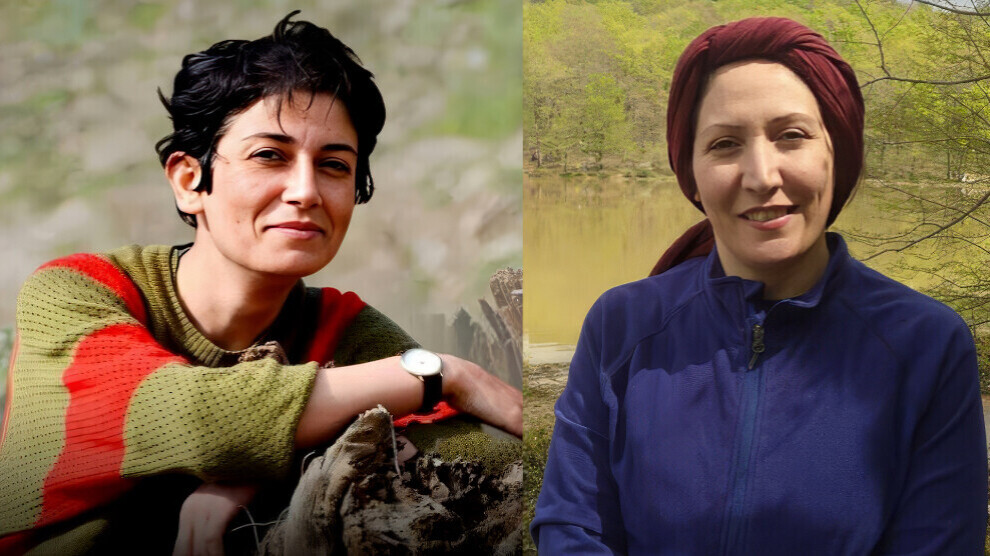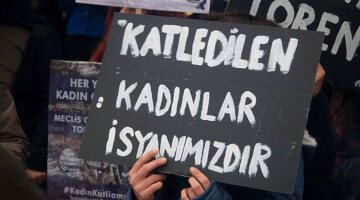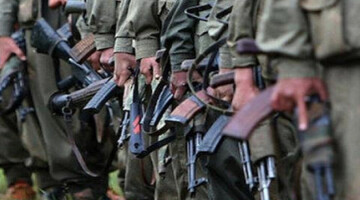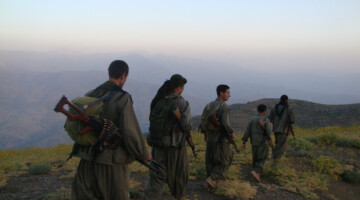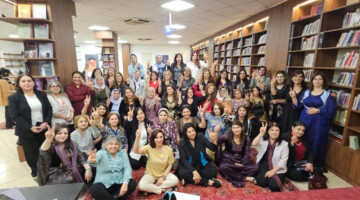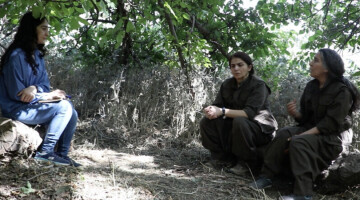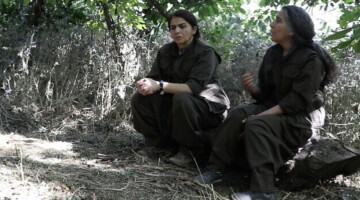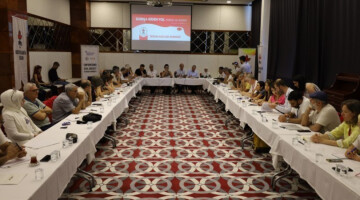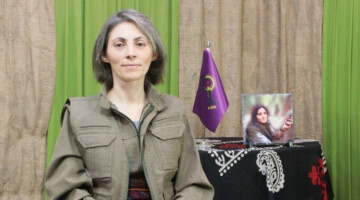Iran sentenced women's rights defender Pakhshan Azizi to death on 23 July and activist Sharifa Mohammadi on 4 July. Both were subjected to severe torture and inhuman treatment during weeks of detention.
The Association of Women Journalists (ROJIN) made a written statement condemning the death sentences against two female activists in Iran.
“Today, as societies need to be informed more than ever due to rising war policies, totalitarian regimes are increasing their pressure on journalists. According to the data shared by the international organisation Reporters Without Borders, many governments around the world prevent the public's right to information with their policies of repression, arrest, detention and murder of journalists,” said the ROJIN statement on Sunday.
Emphasising that Iran is one of the countries where journalists are suppressed and arrested the most, the statement said: “A new one has been added to the increasing attacks after the ‘Jin Jiyan Azadi’ (Woman, Life, Freedom) uprisings that started in 2022. The Mullah regime sentenced journalist Pakhshan Azizi and activist Sharifa Mohammadi to death in the month of July.”
The statement further included the following:
“The new President Masoud Pezeshkian, who inherited the policies of execution, repression and violence from Ebrahim Raisi, continues the policies of condemning women, journalists and society to darkness.
The misogynist mullah regime responds to the ‘Jin Jiyan Azadî’ rebellion and women's demand for freedom, which started after the murder of Jîna Amini in 2022, with arrests, torture, oppression and violation of rights. During the ‘Jin Jiyan Azadî’ uprising, female journalists targeted by pressure the most. In general, torture and arrest of journalists reached the highest level. This fact, which is also confirmed by the Committee to Protect Journalists (CPJ) with concrete data, also points to the life-threatening danger that journalists face. According to the data shared by CPJ, at least 40 journalists were arrested and their equipment confiscated in Iran in the first month of the ‘Jin Jiyan Azadi’ uprising.
According to the 2024 World Press Freedom Index of the Reporters Without Borders (RSF), Iran ranks 176th out of 180 countries.
Historically, attacks such as oppression, torture, arrest and massacres against journalists and women have coincided with periods of increasing sovereign and colonial policies. As a matter of fact, the period we are going through is precisely such a period. According to the 2023 report by the Iranian Human Rights Organisation (IHR) and the Iranian Committee Against the Death Penalty (ECPM), 834 people were executed in one year. At least two of those executed were children and 22 were women. The current data shows a policy of genocide, directed especially against women.
Journalists are targeted not only in Iran but in many centres of the world due to the politics of war. The rulers, who want to cover up their own crimes and distort the truth, direct their policies of violence against journalists. IFJ's 2023 report confirms this reality. According to the data by the IFJ, 120 journalists and media workers were murdered worldwide in 2023.
Kurdish journalists, who have been experiencing state oppression in its strictest form for decades, resist for the sake of keeping the truth out of the dark. The Kurdish media, which does not compromise its journalistic ethics despite detentions, arrests, threats and killings, faces naked pressure from the Turkish state and European states. As of May 2024, there are 32 journalists in Turkish prisons, while investigations and lawsuits are ongoing against many of them.
In Northern Kurdistan, dozens of media organisations were shut down, newspaper buildings were bombed, and veterans were murdered, but the Kurdish media managed to protect the public's right to information against these harsh state attacks. This is an instructive path for everyone practising journalism.
On the other hand, it is obvious that the Iranian regime, which pursues parallel policies with Turkey on many issues, will not be able to stop social demands, especially those of women, through repression, arrests and executions. You cannot bend the truth, because the truth always finds a way to be revealed. As a matter of fact, the repression and executions that have been increasing since 2022 did not and will not stop the struggle of women and the demands of society. Even if they suppress journalists who reflect the democratic and libertarian demands of society and risk all kinds of danger for the right to information, they will not be able to prevent them.
As the Association of Women Journalists (ROJIN), we would like to express that we stand by the women journalists who resist Iran's execution policies, struggle and do not compromise their demands, and all women who resist for their freedom. In the person of Pakhshan Azizi and Sharifa Mohammadi, we salute the brave journalists and women activists who do not submit to the oppression of colonialist fascist states, who risk heavy costs for the sake of bringing women's resistance to the public, and we call on all press institutions and women's organisations to take action to stop the death penalty with the awareness that it is a human duty to fight against execution.”

